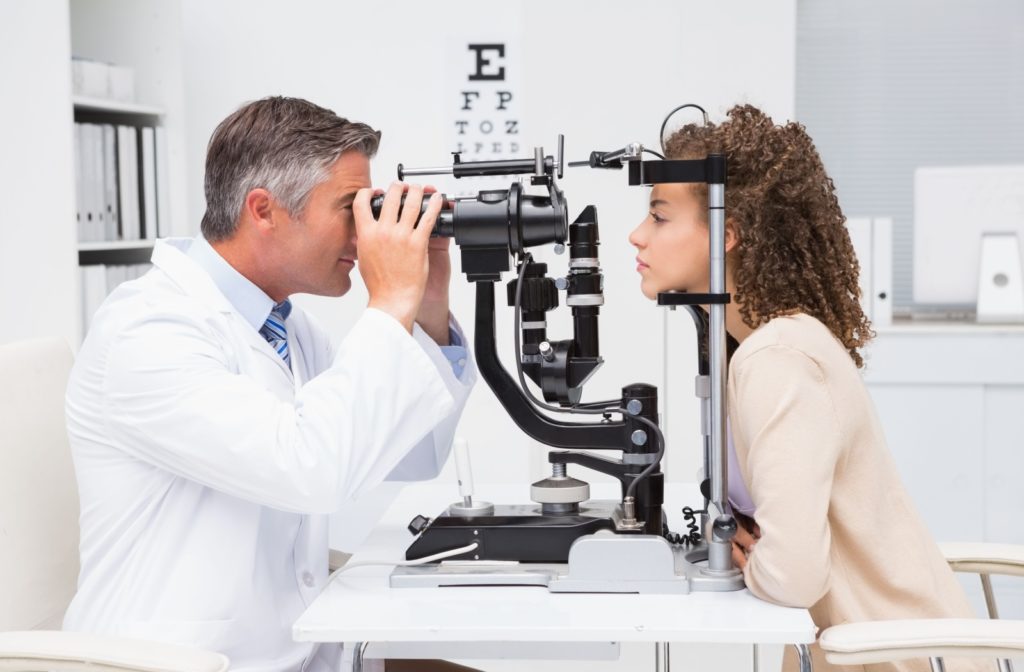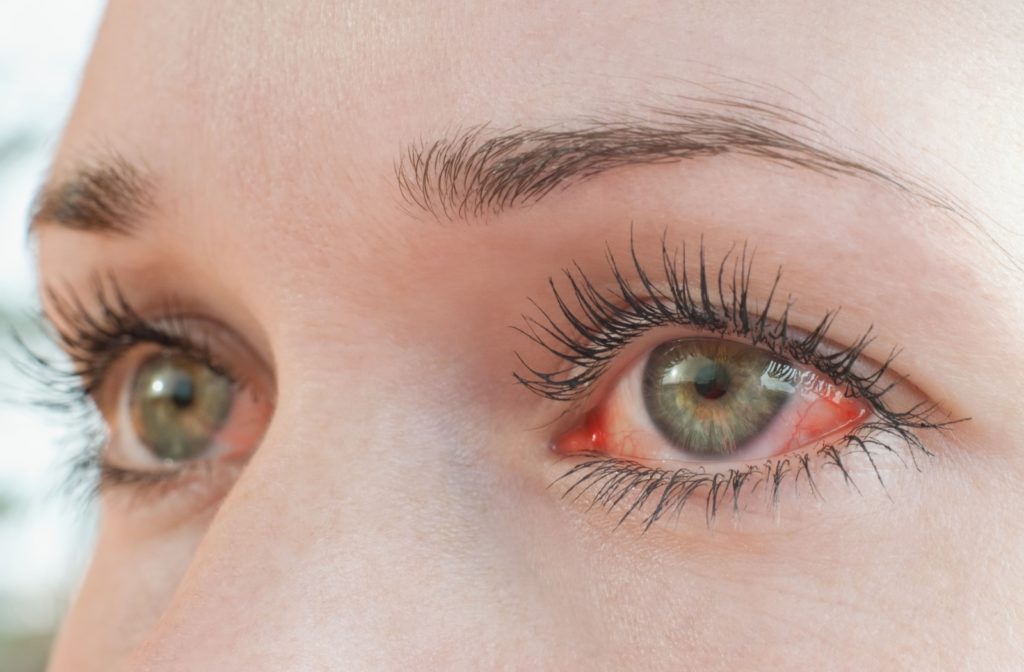If you’ve ever dealt with that visible redness, irritation, and discomfort associated with pink eye, you know how frustrating this eye condition can be. It’s often highly contagious, which means you’ll need to practice additional care throughout your day. So, if you’re experiencing pink eye, you might wonder, can an optometrist treat pink eye?
Pink eye is an extremely common eye condition, and your optometrist can likely help. They’ll be able to thoroughly examine your eyes, determine what’s causing your symptoms, and then recommend an appropriate treatment to help you find relief.
What Is Pink Eye?
Pink eye, clinically known as conjunctivitis, is an inflammation of the thin tissue covering the whites of your eyes and the inside of the eyelids. This tissue, called the conjunctiva, is extremely sensitive.
When inflamed, it causes the white areas of your eyes to appear pink or red. Because of this, it is often called “pink eye.” There are 3 types of pink eye:
- Bacterial
- Viral
- Allergic
Bacterial Conjunctivitis
Bacterial conjunctivitis is caused by a bacterial infection inflaming the eye. It is highly contagious, and contact with an infected person or surface can spread the condition.
If you have bacterial pink eye, proper hygiene is key to reducing the risk of passing it to another person. Make sure to regularly:
- Wash your hands thoroughly with soap and water, especially before and after touching your eyes
- Avoid sharing personal items like towels, pillows, and makeup that come in direct contact with the eyes
- Change your pillowcases and bed sheets frequently to prevent the spread of bacteria
- Use a clean, damp cloth to gently wipe away any discharge from the eyes
These simple strategies can help prevent passing the condition along to someone else.
The Symptoms
Bacterial pink eye often causes:
- Redness in one or both eyes
- Burning sensation in the eyes
- Thick, sticky discharge from the eyes that can cause the eyelids to stick together, especially after sleep
Fortunately, bacterial conjunctivitis can be treated with antibiotics. Even if your symptoms recede, make sure to take the full course of antibiotics; this helps prevent bacteria from becoming resistant to future treatments.
Viral Conjunctivitis
Viral conjunctivitis is the most common type of pink eye. This variant, caused by a viral infection in the body, is highly contagious and can easily be transmitted between people through contact with infected surfaces or bodily fluids.
The Symptoms
Viral conjunctivitis often causes:
- Redness in one or both eyes
- Itchy, burning sensation in the eyes
- Watery discharge from the eyes
- Swollen eyelids
Because this is caused by a virus rather than bacteria, antibiotics don’t help. Instead, you’ll need to wait for symptoms to recede on their own. This typically takes anywhere between a few days to a week or so.
Allergic Conjunctivitis
Allergic conjunctivitis is caused by an allergic reaction to a contaminant, like pollen or pet dander. There is good news—while this condition can be irritating, it isn’t contagious. Instead, it’s your body overreacting to an allergen, and you can’t pass that along to someone else. Allergic conjunctivitis often appears alongside other allergy symptoms like sneezing and an itchy throat.
The Symptoms
The symptoms of allergic pink eye include:
- Redness in both eyes
- Intense itching of the eyes
- Tearing
- Swollen eyelids
This can often be treated with antihistamines, eye drops, or other allergy medications.

Do You Need to See an Optometrist for Pink Eye?
Even though the symptoms of pink eye are recognizable, it can be difficult to self-diagnose exactly what type you’re experiencing. The symptoms of each type can easily be confused with another, so it helps to get a professional diagnosis.
If you’re experiencing viral pink eye, your optometrist can advise you on managing symptoms and how long you can expect the condition to linger. For bacterial pink eye, they can prescribe you specific antibiotics to help you find relief and make symptoms recede. And for allergic pink eye, they’ll likely be able to recommend the right type of medication to help you avoid a reaction in the future.
In some situations, they may recommend eye drops, oral medication to help treat your symptoms, or over-the-counter medication to prevent the spread of the infection. They’ll also advise you on maintaining proper eye hygiene to lower your risk of pink eye in the future.
Get Help with Your Eye Care
At Golden Hills Optometry, we understand how frustrating and uncomfortable pink eye can be. And there’s good news—our team of skilled optometrists is dedicated to providing you with the right care so you can effectively manage your pink eye.
If you’re dealing with pink eye—or any other eye condition—contact our team to find relief. Book an appointment with us today!



